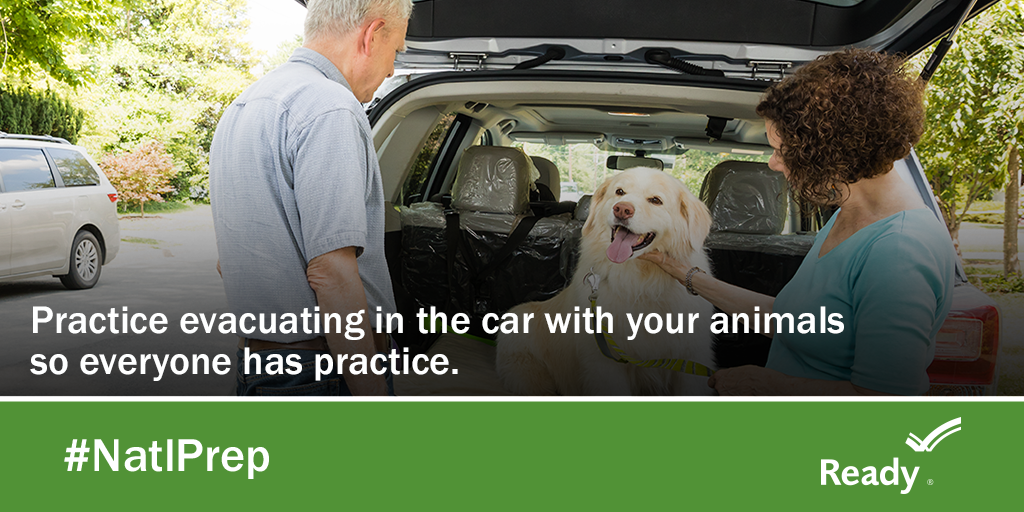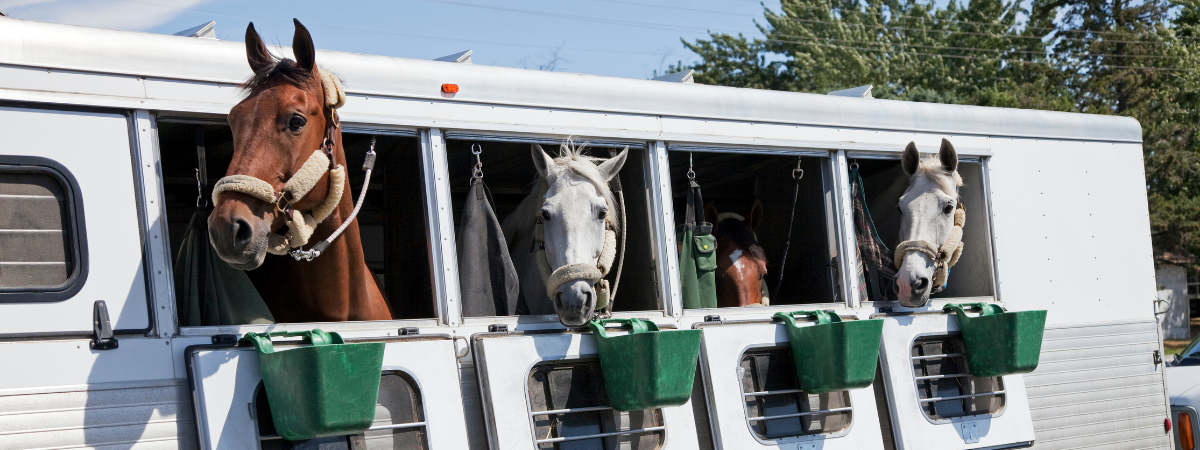Disasters impact pets and companion animals, too! Whether you decide to stay put or evacuate to a safer location, you will need to make plans for your pets. Keep in mind that what’s best for you is what’s best for your animals.
- Find a safe place for your pets to stay before an emergency happens. Possible choices are: emergency pet shelters, animal control shelters, veterinary clinics, or out-of-area contacts. Some hotels and motels may allow you to bring pets; others may suspend “no pet” rules during an emergency. Check in advance.
- Arrange for a trusted friend or neighbor to check on your pets in case you cannot make it home during an emergency. Make certain they have access to your pet, your pet’s emergency kit, and that your pet is comfortable with this person in advance.
- Have your pet wear a current ID tag all times. Label pet carriers with contact information.
- Make sure your pets are up-to-date on their vaccinations. Pet shelters may require proof of vaccines.
When emergencies are developing, keep your pets in your house. Call your pet shelter and arrange to drop off your pet and pet emergency kit as soon as possible. If dropping your pet off is not an option, keep your pet on a leash or in a carrier in case you need to evacuate quickly. If you are not home during an emergency, have a trusted friend or neighbor care for your pet. For more, visit the State of Washington Department of Emergency Management.
- Medication and medical records in a waterproof container as well as a pet first aid kit.
- Sturdy leashes and harnesses, along with a secure carrier.
- Photos of your pet to help find lost animals and prove ownership.
- Food and water for two weeks. Thirty days is better.
- Bowls, cat litter and litter box, and a manual can opener.
- Include feeding schedules, medical conditions, behavior problems, and the name and number of your veterinarians.
- Pet beds and toys, if possible.
- Grooming items, if possible.
Key Considerations
There are no plans to accommodate pets or companion animals in local shelters. Service animals are allowed; but, according to the Americans with Disabilities Act, companion animals are not considered to be service animals. The Kitsap County Department of Emergency Management (KCDEM) recognizes the gap in service and is working on plans to accommodate pets and companion animals in certain situations. There is no current or future plan to accommodate exotic animals.
.

KCDEM News
Micro-Islands in Kitsap County
Micro-islands are areas that may be isolated after a major earthquake. Why? Roads, bridges, and other infrastructure are expected to be too damaged to support normal movement. Each micro-island within Kitsap County will [...]
EMC Meeting July 5, 2022 – Meeting Notice, Agenda, April 5, 2022 Minutes, & Meeting Login
The Emergency Management Council (EMC) will be held on Tuesday, July 5, 2022 from 12:00PM-2:00PM "America/Los_Angeles_Time" Topic: Emergency Management Council Regular Quarterly Meeting - July 5, 2022 *This 2 hour meeting will go into a [...]
Executive Session Meeting Tuesday May 31, 2022
WHO: Emergency Management Council (EMC) invited participants WHAT: Executive Session Meeting WHEN: Tuesday May 31, 2022 Time: 9:30AM WHERE: Via Zoom SUBJECT: To discuss a potential litigation matter EMC Meeting AGENDA 05.31.2022 Final
Events
Helpful Links
- Pets and Emergencies (source: WA DOH):
- General Pet Disaster Information Plus Considerations for Other Animals (source: ASPCA)
- Pet Disaster Preparedness (source: CDC)
- Seguridad de las mascotas durante emergencias (source: CDC)
- Disaster preparedness for farm animals (source: Humane Society)
- Disaster preparedness for horses (source: Humane Society)
- Do you have an emergency plan for your pet? (source: Kitsap Humane Society)
- In Case of Emergency – Save Our Pets (PDF)





